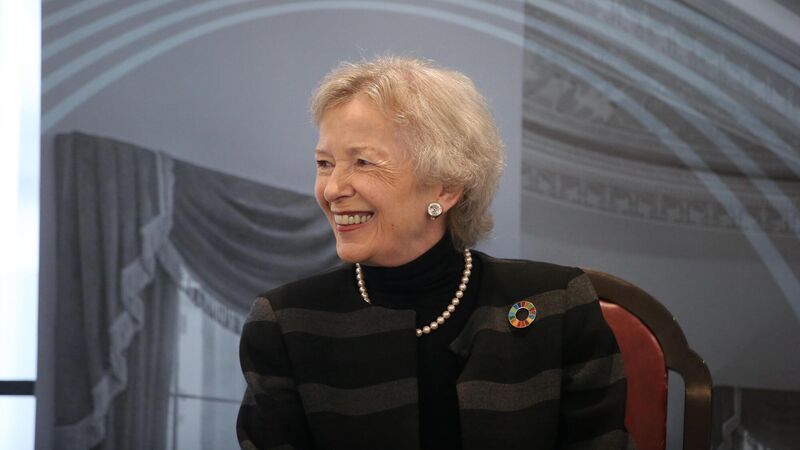'We have to bring hope': Mary Robinson, Anne Karpf and Dr Tara Shine on climate action

Former President Mary Robinson: "we have to bring hope". Pic: Collins
Earlier this week, the Intergovernmental Panel on Climate Change issued a stark warning: our window of opportunity for acting to avoid the most catastrophic effects of climate change is rapidly closing.
But even in the face of such a bleak warning, it is important to keep hope alive. Former UN high commissioner Mary Robinson says hope is a necessary currency. Robinson is inspired by Archbishop Tutu’s words: ‘I’m not an optimist. I’m a prisoner of hope’.











